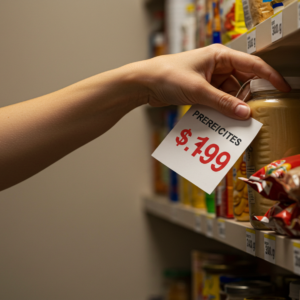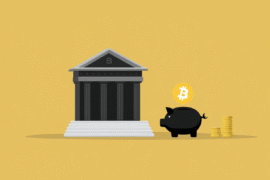This article may contain references to products or services from one or more of our advertisers or partners. We may receive compensation when you click on links to those products or services. Nonetheless, our opinions are our own.
The information presented in this article is accurate to the best of our knowledge at the time of publication. However, information is subject to change, and no guarantees are made about the continued accuracy or completeness of this content after its publication date.

Updated by Albert Fang
- Key Highlights
- Introduction
- Conclusion
- Frequently Asked Questions
- Recommended Reads
Key Highlights
- Cryptocurrencies are digital coins that run on blockchain. They provide decentralization and security.
- Crypto security means keeping wallets, exchanges, transactions, and important details safe from online threats.
- Cold storage wallets are good for keeping private keys safe.
- Using strong passwords, encryption, and good habits helps lower the risk from phishing, malware, and scams.
- Regular updates and two-step verification boost safety for crypto transactions.
- Learning about cryptocurrency security is important for good risk management.
Introduction
The mix of blockchain, cryptocurrency, and cybersecurity gives users both chances and problems. Digital money such as Bitcoin and Ethereum has changed how we do online transactions by making them clear and decentralized. But as more people use them, cyber risks are also increasing. Attacks like phishing, scams, and malware can be big threats. It is important to have strong security for crypto to keep personal information safe and stay in control of digital investments.
What Is Crypto Security?
Crypto security means protecting digital money from online threats. This includes keeping private keys, wallets, and exchanges safe. Strong passwords, two-step verification, and secure communication help lower the risks.
While blockchain is decentralized and provides some safety, users need to act wisely. They should take steps like using cold wallets, staying away from questionable links, and keeping their personal devices secure. This is important for protecting their crypto assets.
Core Components of Crypto Security
Good crypto security relies on several key things:
- Strong Passwords: Creating strong and safe passwords is key. A password manager can help keep them secure and stop unauthorized access.
- Encryption: This changes data into a code that only authorized users can read. It’s very important for keeping wallets and transactions safe.
- Updated Software: Updates and security fixes solve problems. Always keep your apps, wallets, and systems up to date.
- Cold Storage: Offline wallets keep private keys safe from online threats. They are great for storing assets long-term.
- Multi-Factor Authentication (MFA): This adds an extra step for verification and greatly improves login security.
Preparing for Secure Crypto Use
Before managing crypto, it’s important to know the right tools and the risks. Pick a wallet that fits your needs: hot wallets for easy access or cold wallets for keeping it long-term.
Invest in trusted hardware. Use secure internet connections. Create a routine for backing up important data. A careful plan for managing risks is key. This includes staying away from public Wi-Fi and keeping your antivirus software running. These steps can make your crypto space safer.
Essential Tools and Resources
- Crypto Wallets: Hot wallets are online and easy to use, but they are more at risk. Cold wallets are not online and provide better safety.
- Encryption Tools: These tools help keep your messages and transactions safe.
- Security Education: These platforms give you the latest guides on scams, software safety, and how to stay safe with blockchain.
Creating a Safe Crypto Environment
Set up protections like firewalls, private networks (VPNs), and antivirus programs. Keep your devices safe and clean. Regular checks and monitoring can help find strange activity early.
A good approach includes both online and offline security methods. This means safely storing seed phrases and private keys.
Step-by-Step Crypto Security Practices
1. Choose a Reliable Wallet
I like cold wallets for storing money for a long time. Use wallets that have good features, like multi-signature access.
2. Enable Multi-Factor Authentication
Use a password and add another method, such as a mobile code or a fingerprint scan.
3. Keep Software Updated
Enable auto-updates when you can. This is for wallets, exchanges, and the operating system on your device.
4. Avoid Phishing Scams
Make sure to check the email senders and the website addresses. Don’t click on links you don’t know or share any private keys.
5. Back Data Securely
Store seed phrases and login details in locked drives or storage that is not online. Update backups after important transactions.
Recognizing Common Threats
Stay informed about crypto-specific threats:
- Phishing Attacks: Fake emails or websites that take your login info.
- Fake ICOs: Fake investment opportunities.
- Ponzi Schemes: Scams that use money from new investors to pay old investors.
- DDoS Attacks: Target networks to stop operations.
Use tools to find threats, keep strong passwords, and stay away from unknown links. Being watchful helps keep your things safe.
Notable Security Breaches
| Breach | Year | Details |
|---|---|---|
| Mt. Gox | 2014 | Lost 850,000 BTC due to poor security protocols. |
| Coincheck | 2018 | Hackers stole $534 million in NEM tokens from hot wallets. |
| Binance | 2019 | $40 million in BTC lost due to phishing and API exploits. |
These cases highlight the need for strong platform security and personal safety measures.
Voted "Best Overall Budgeting App" by Forbes and WSJ
Monarch Money helps you budget, track spending, set goals, and plan your financial future—all in one app.
Get 50% OFF your first year with code MONARCHVIP
Conclusion
Keeping your crypto safe is very important for protecting your digital investments. Strong passwords, encryption, multi-factor authentication, and secure wallets can help you stay safe. Being watchful and informed is the best way to fight new threats. Act now to secure your crypto safely.
Frequently Asked Questions
What is two-factor authentication (2FA), and why is it important?
2FA helps keep your accounts safe. It does this by asking for a second way to prove your identity. This could be a code from an app, plus your password.
How can I avoid phishing scams?
Don’t click on links you don’t know. Check website URLs to make sure they are safe. Never share your private keys. Use trusted security software to find harmful activity.
Is public Wi-Fi safe for crypto transactions?
No, public Wi-Fi is risky. Hackers can intercept your data. Use a secure, private connection or a VPN when accessing crypto accounts.
What are seed phrases, and how should I store them?
A seed phrase is a set of words that can recover your wallet. Store it offline in a secure place—like a locked safe or encrypted USB—not on your computer or phone.
Can antivirus software really help protect my crypto?
Yes, good antivirus software can detect malware, phishing attempts, and other threats that might target your wallet or private keys.

Reviewed and edited by Albert Fang.
See a typo or want to suggest an edit/revision to the content? Use the contact us form to provide feedback.
At FangWallet, we value editorial integrity and open collaboration in curating quality content for readers to enjoy. Much appreciated for the assist.
Did you like our article and find it insightful? We encourage sharing the article link with family and friends to benefit as well - better yet, sharing on social media. Thank you for the support! 🍉
Article Title: Crypto Security Basics: A Beginner’s Guide to Software Protection
https://fangwallet.com/2025/04/18/crypto-security-basics/The FangWallet Promise
FangWallet is an editorially independent resource - founded on breaking down challenging financial concepts for anyone to understand since 2014. While we adhere to editorial integrity, note that this post may contain references to products from our partners.
The FangWallet promise is always to have your best interest in mind and be transparent and honest about the financial picture.
Become an Insider

Subscribe to get a free daily budget planner printable to help get your money on track!
Make passive money the right way. No spam.
Editorial Disclaimer: The editorial content on this page is not provided by any of the companies mentioned. The opinions expressed here are the author's alone.
The content of this website is for informational purposes only and does not represent investment advice, or an offer or solicitation to buy or sell any security, investment, or product. Investors are encouraged to do their own due diligence, and, if necessary, consult professional advising before making any investment decisions. Investing involves a high degree of risk, and financial losses may occur including the potential loss of principal.
Source Citation References:
+ Inspo
There are no additional citations or references to note for this article at this time.












































